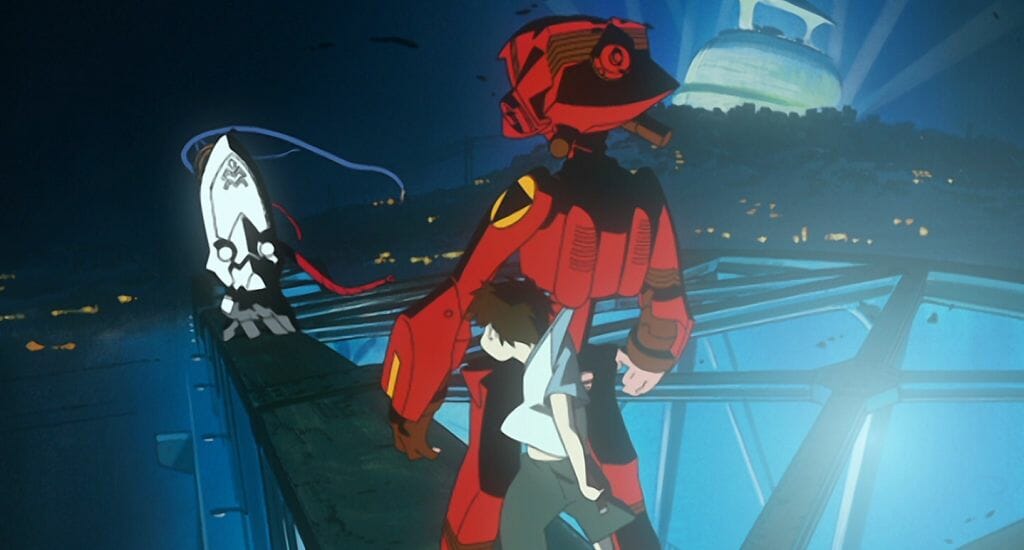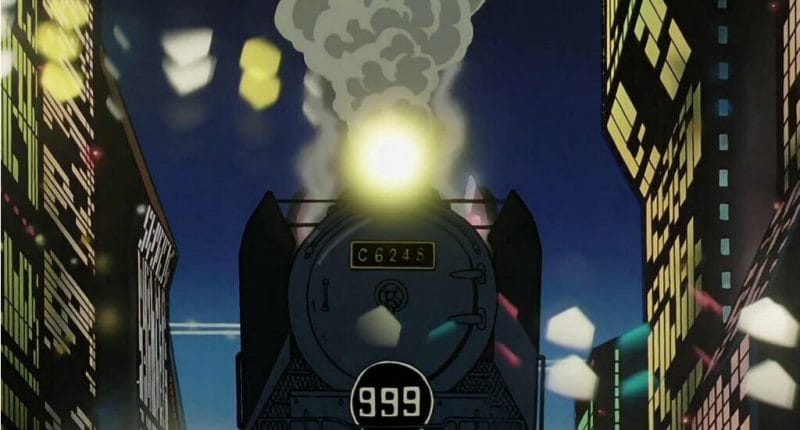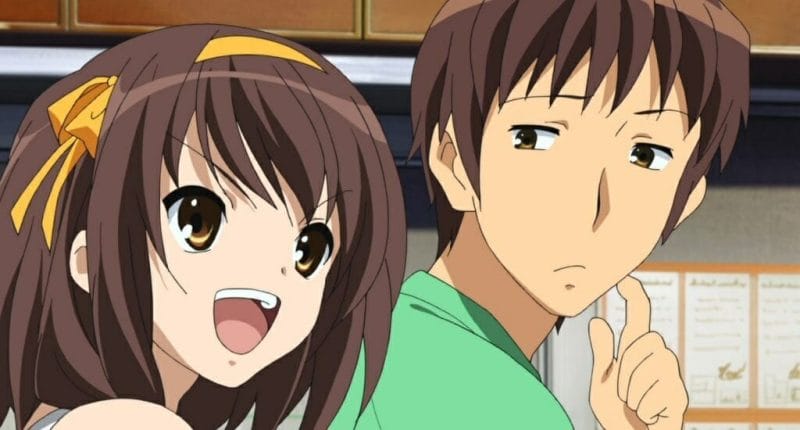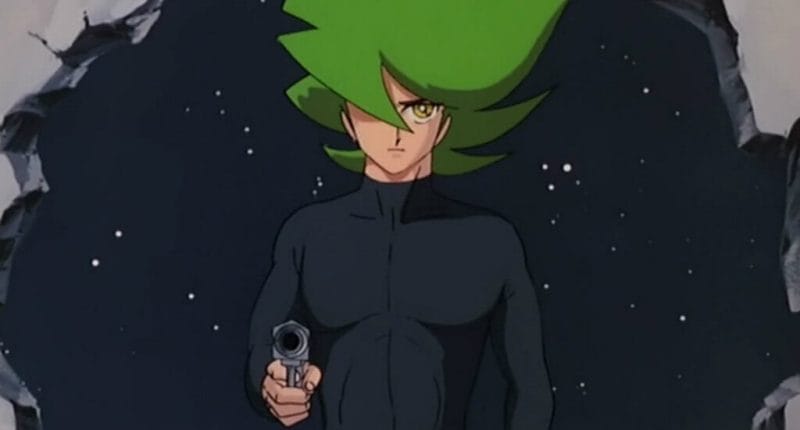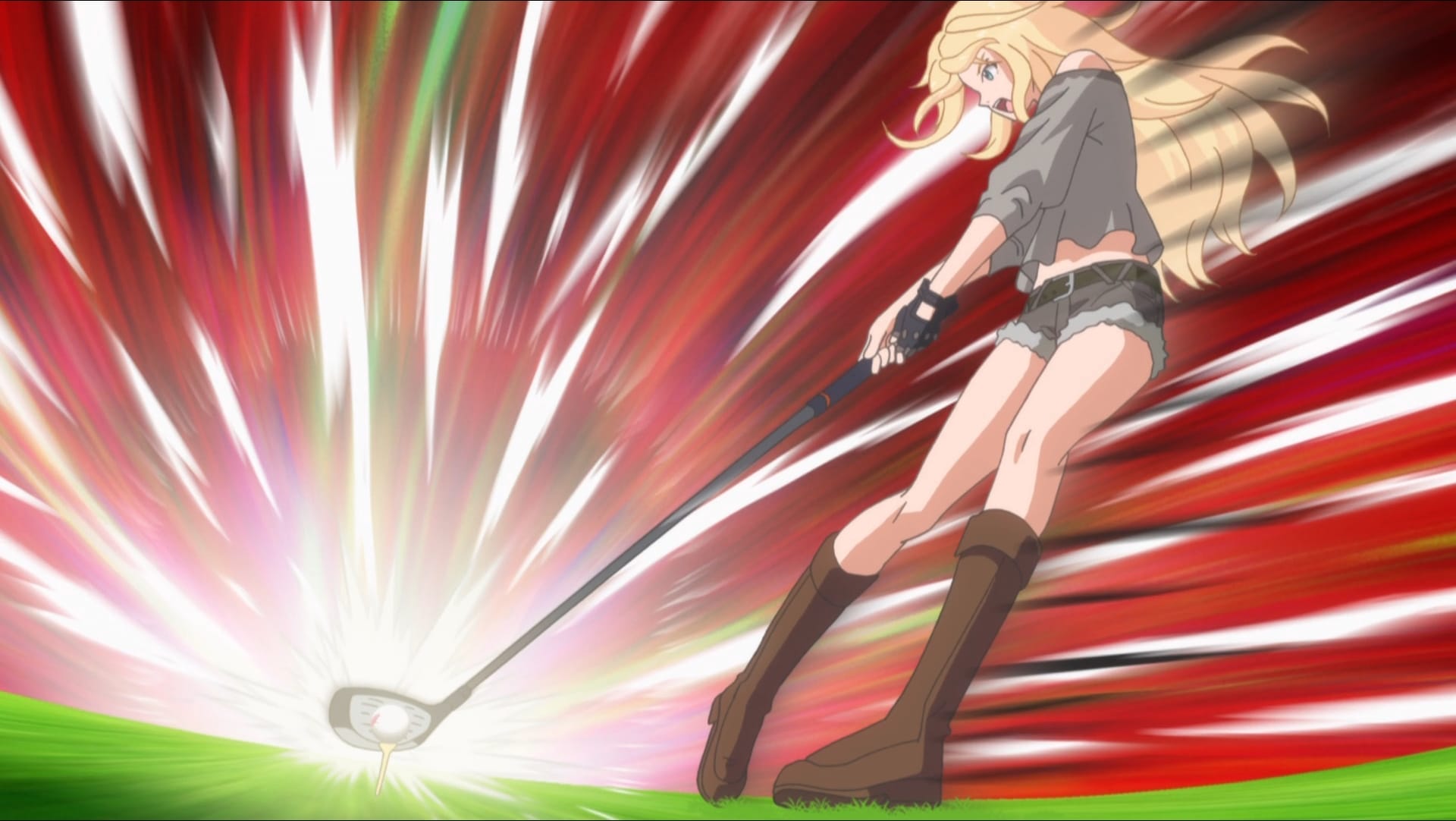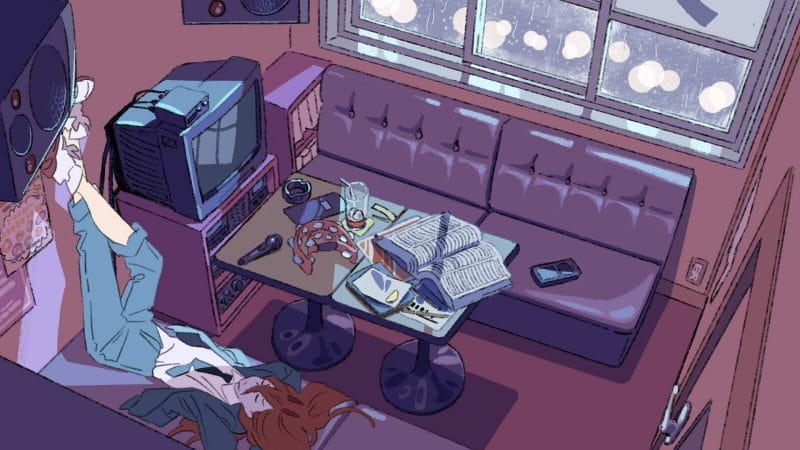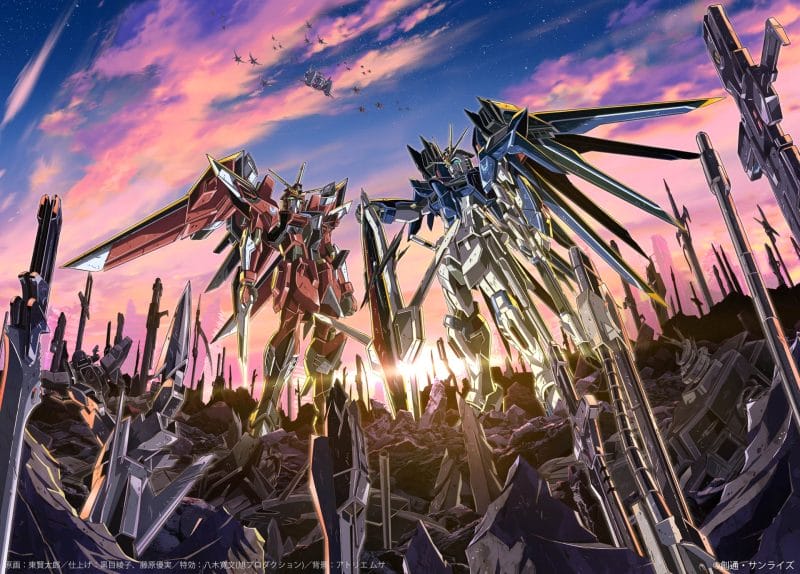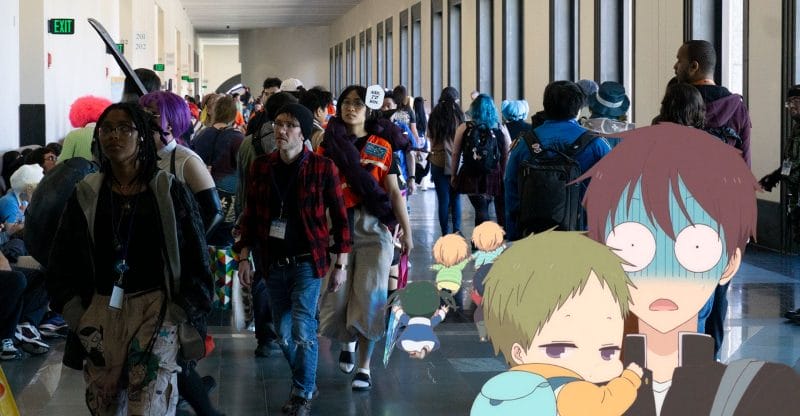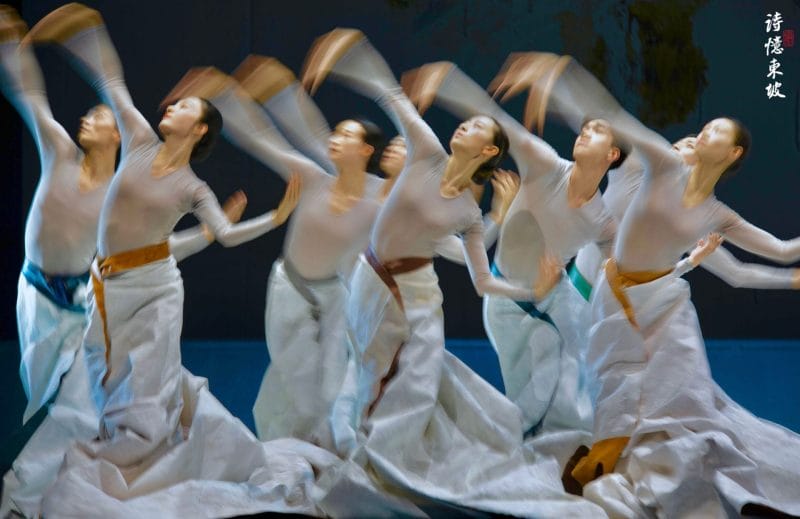Content Warning: Contains spoilers for Pom Poko and FLCL
Table of contents
The phrase “Wagga Wagga” is the Japanese equivalent of a “Ka-Pow” or a “Ka-Spla-a-t”. It’s an onomatopoeia, often reserved for giant robots or a Dragon Ball fight scene.
I am not Japanese, nor do I live in Japan. For me, Wagga Wagga is the name of a small rural city. In Australia, in the Wiradjuri Aboriginal language, it means the “the place of many crows”. I did not see many crows growing up in Wagga Wagga. I mean, I saw some, and they’re somewhere, but for me Wagga Wagga also means “home.”
It means cows.
It means yellow fields, a rubbish mall, and eighteen years of drought.
It means watching anime in a basement in minus-zero degree temperatures.
It means FLCL.
It means Pom Poko.
It means swing sets and sparkler bombs, skating, and other bullshit.
It means a lot of things, some of them I’m still trying to untangle. Maybe it’s best if I start at the beginning. Maybe it’s best I see things as I once saw things: with anime as the lens, and robots as metaphors.
Part One: The ‘Pom-Poko’ Era
My dad, sister, and I are in a Blockbuster, and I am eleven. We are waiting, impatiently, for our Chinese next door to be cooked. It’s 2005. The Chinese food is either the best in the world, or my entire palate is ruined.
I am hungry and do not understand why we’re just standing in the international movie section. My Dad picks up a DVD. It says Laputa. He heard that this, I don’t know: “Studio Ghibli” (?) makes good kids’ movies? They won an Oscar a while back, and they have a new one coming out called Howl’s Moving Castle. He wonders if it’ll be good. He also wonders if we’ll all enjoy the film.
Most defining childhood experiences can be likened to pouring Pop Rocks over your cerebral cortex. Birthday cakes, roller coasters, Spongebob… putting Laputa into our DVD player was nothing like these experiences. Laputa is a thoughtful film. It’s gently paced, intimate, and can be a quiet movie at the best of times. That said, Laptua is also not the Studio Ghibli work that really stayed with me. Nor was it Porco Rosso, nor The Cat Returns. The movie that changed everything was one we rented around a month later.
It was a picture called Pom Poko.
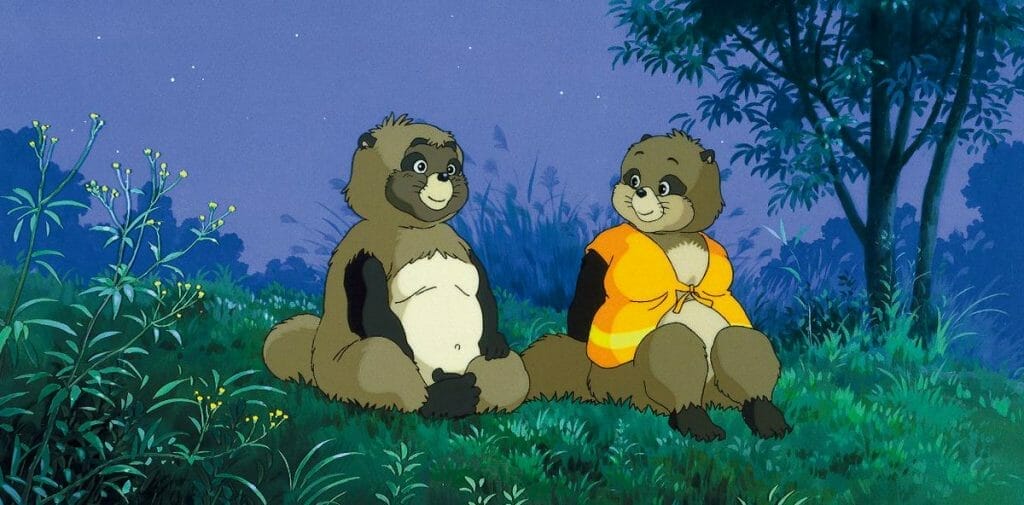
For those who are unaware, Pom Poko is a film that stars a bunch of tanuki, Japanese racoon-dogs that are utterly entrenched in Japanese folklore. They can talk, shape-shift, and perform other wondrous feats. One day, they awaken to discover that their forest is being destroyed because of the development of Tokyo’s Tama New Town district. Over the course of the film, the tanuki must find a way to stop the destructive machinations of developers. More important, though, they must find a way to save their home.
(The next section contains SPOILERS for Pom Poko. Please disconnect from your internet and go watch it.)
From the first frame of Pom Poko, I was hooked. I remember watching each minute of it, laughing at its jokes and gaping at its story all the while. I remember it attaching itself to my brain for reasons deeper than that, though. I saw myself in those Japanese racoon dogs. You see, my backyard was also being demolished. Huge chunks my suburb were being bought up. The places I played “cops and robbers,” or simply daydreamt in were quickly being bulldozed. Like Shōkichi, who watched as his home was excavated into nowhere, I could feel my world becoming smaller.
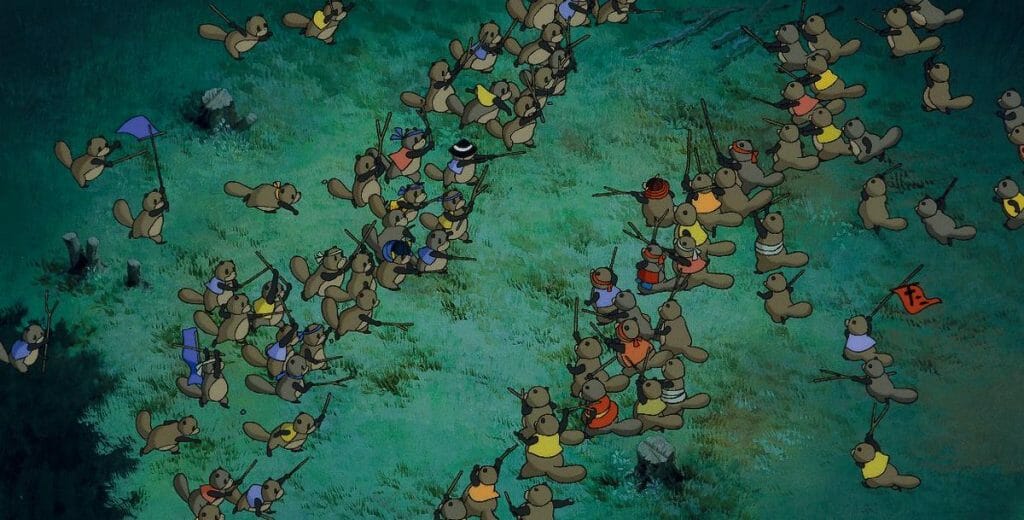
Ultimately, though, the tanuki of Pom Poko weren’t able to save their forest.
I wept.
I’m not saying that I had it as tough a displaced racoon dog, of course. That would be ludicrous. But, in my prepubescent mindscape, the connection between myself and these creatures most certainly felt real. This was the first movie that I saw myself in where the good guys actually lost. And, sure enough, the bulldozers kept on coming. The suburbs kept getting built. And just like in Pom Poko, the wildlife of the area started to vanish.
Part Two: “Fooly Cooly” Versus “Furi Kuri”
Art can help us articulate our own experiences. As Henry James said in his 1884 essay, The Art of Fiction, “As people feel life, so they will feel the art that is most closely related to it.” In a western context, though, anime has always been seen as a niche. From its days of VHS trading to the tentacle porn memes that won’t die, it has been framed as low-brow and unsophisticated. And, like most art that’s framed as lesser, we can come to believe that it is.
The first time I watched FLCL, I was fourteen and holidaying with my friend Andy. We were staying near the beach, so naturally, we were in a basement watching cartoons. We powered through Fullmetal Alchemist. We smashed through a comedy called The Wallflower: Yamato Nadeshiko Shichihenge. And then, out of nowhere, Andy put FLCL into my old, crummy, portable DVD player.
FLCL is a story about a boy who grows robots out of his head. It has manga sequences, guitar battle-axes, and a jaw-dropping soundtrack by The Pillows. While these elements are amazing, it was the show’s opening monologue that will stay in my noggin forever. “Nothing amazing happens here. Everything is ordinary,” opines Naota as the camera pans over a watercolour townscape. An iron-shaped building looms in the background. Mist starts to emit from its insides. “The white steam,” Naota continues, “it looked to me like smoke that signified some kind of omen. Smoke that spreads out and covers everything.”
In Wagga, in the frostbitten winter, the whole city is blanketed in mist. It covers the drought and the dirt. It covers the hungry sheep. It covers the mall, all the cars, and every suburb that dotted the ground below it. You cannot see your backyard, let alone the horizon. And when you’re fourteen, without a car, incubated in a school routine, it’s difficult to imagine anything beyond the mist. Everyone is ordinary, and the sense of isolation becomes banal. To say that I felt a kinship with Naota would be a tad of an understatement
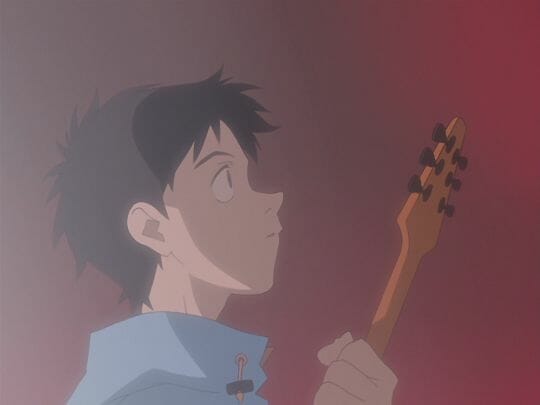
But FLCL is no Great Expectations. It wasn’t a top-forty song, let alone a popular show in Wagga. This made FLCL feel special and intimate, but it also made me feel lonely. I was watching ‘cartoons’ at fourteen. And because culture saw this experience as smaller, I started to see it that way too. In the weeks after watching FLCL, I dreamt of the show becoming a new genre of fiction. I imagined anime becoming the future of TV, and writing essays about its importance. In retrospect, I wish I saw it the same way I saw Pom Poko. Then, maybe, the show would have actually helped, I could have felt less alone.
After the holiday, when I returned to Wagga Wagga, I started acting out more. I started skating behind cars and making chlorine bombs in car parks. I think my brain was turning into something new, or maybe I was just feeling small. Either way, I wanted to leave Wagga Wagga. There were no amazing robot fights. There were no transforming dog raccoons. And I wanted to rediscover these feelings. I wanted to know what was out beyond the mist.
And I did. When I was eighteen years old, I moved out.
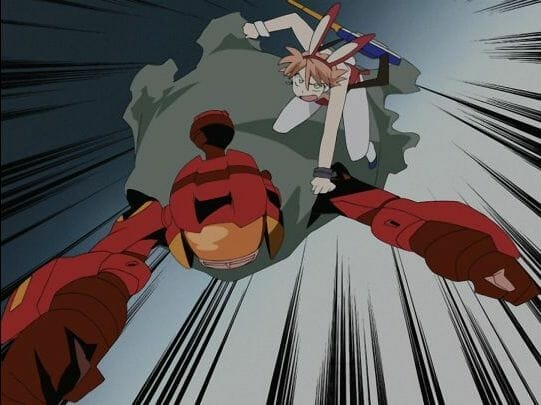
Part Three: Going Home for Easter
Believe or not, since the year 2012, I have grown up and become slightly older. I’m now twenty-five. And with these years of experience, I have grown into a sage and wise old man. Not only have become comfortable who I am and where I came from, but I’m also okay with anime never becoming a cultural revolution. The things that I like don’t have to be zeitgeisty to be valid. The anime I like can be silly, even stupid, and it’s okay for it to be meaningful for only me.
To be honest, I am not sure when this internal change took place. I would like to say that I have matured and developed over the years. A more honest answer would be that it’s rather exhausting and ridiculous to make anime your cross to bear. I think my anxieties moved elsewhere, and I admit that I may have gotten lazy. I think that may be an okay, or even somewhat healthy a response.
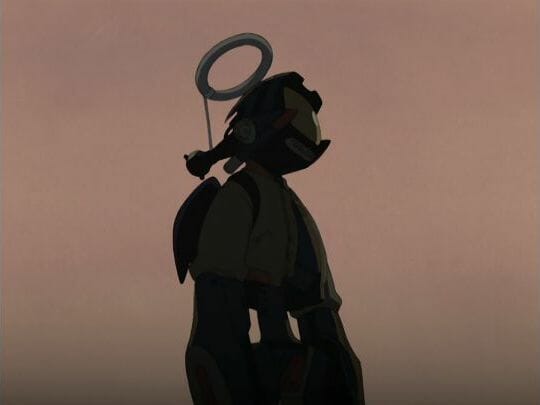
(There are SPOILERS for FLCL in the upcoming paragraph. Please sprint to your local DVD store and purchase it.)
I have also grown to feel very differently about Wagga Wagga. At the end of the first episode of FLCL, Natao repeats the sentiment that “only the ordinary happens here.” This time, though, he’s looking at a robot. He’s gazing upon a robot that grew out of his brain. At fourteen, I couldn’t see the irony in this scene or the good things about Wagga. And there were good things. I was lucky enough to grow up with my sparkler bombs, bonfires, and a whole bunch of experiences that would have been impossible to have in a big city. Even if the places to explore and dream were eaten up by property developers, at least I had those places for a brief moment.
The phrase “Wagga Wagga” is the Japanese equivalent of a “Ka-Pow” or a “Ka-Spla-a-t”. For me, it means the ‘place of many crows’ and home. And I’ll be going back there soon. Just for a while. I am looking forward to taking off my suit and transforming into a kid again. I hope Dad and I can watch Pom Poko again, and I hope we order the greatest Chinese food in the world.
After all, these are the memories that stick, these are the memories to hold on to.


